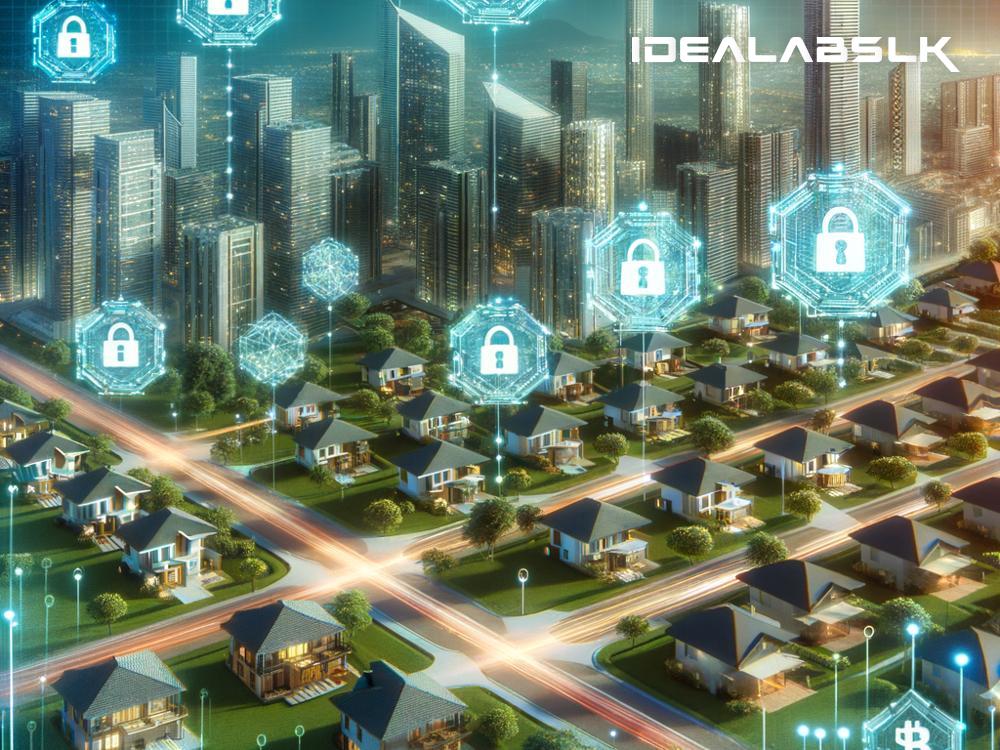Title: How Blockchain Technology is Changing the Real Estate Game
Welcome to the exciting world of real estate! If you're here, you're probably familiar with the usual way of buying or renting properties. For many, this involves lots of paperwork, endless back-and-forth communications, hefty fees, and a test of patience. But what if I told you there's a game changer in town that's starting to reshape how we deal with properties? Yes, I'm talking about blockchain technology.
You might have heard about blockchain in the context of cryptocurrencies like Bitcoin. However, blockchain's magic is not limited to digital money; it's now setting its sights on revolutionizing the real estate market. So, let’s simplify things and explore how blockchain technology is enhancing real estate marketplaces.
Blockchain and Real Estate: A Match Made in Tech Heaven
Imagine a world where buying a house or renting an apartment could be as easy and secure as buying a book online. That's the promise of blockchain technology in real estate. But before we dive into its benefits, let's quickly unpack what blockchain is.
At its core, blockchain is a type of database that securely records transactions across many computers. What makes it special is that once a transaction is recorded, it's nearly impossible to change. This creates a trustworthy and transparent system.
The Major Impacts of Blockchain on Real Estate
-
Simplified Transactions: Blockchain can make buying or renting properties a breeze. Traditionally, real estate transactions involve lots of intermediaries like agents, lawyers, and banks. Blockchain allows buyers and sellers to connect directly, reducing delays and cutting down on hefty fees.
-
Enhanced Security and Transparency: Because blockchain records are permanent and tamper-proof, everyone involved can trust that the property history and ownership details are accurate. This transparency helps reduce fraud and disputes, making transactions smoother and safer.
-
Tokenization of Properties: This is a fancy way of saying properties can be divided into shares that can be bought and sold on the blockchain. This could make investing in real estate more accessible to more people. Instead of needing tons of money to invest in real estate, individuals could buy shares of a property, just like buying stocks in a company.
-
Smart Contracts: These are self-executing contracts with the terms directly written into code. In real estate, this could automate processes like lease agreements or property purchases once conditions are met, reducing the need for intermediaries and speeding up transactions.
Real-world Examples and Future Possibilities
Several startups and established companies are exploring how to integrate blockchain into real estate. For example, companies like Propy are working on making global real estate transactions as seamless and simple as online shopping. Meanwhile, platforms like RealT allow investors to buy fractions of properties and earn rental income, all done on the blockchain.
The potential doesn't stop at simplifying transactions and investment. Blockchain could also revolutionize property management, enabling a more efficient way to manage leases, payments, and even track maintenance history.
Challenges and Considerations
Despite its promise, integrating blockchain into real estate isn't without challenges. Regulatory hurdles, technological barriers, and the need for widespread adoption are significant obstacles to overcome. Plus, the real estate industry is traditionally slow to adopt new technologies, which could delay blockchain’s potential impact.
Moreover, while blockchain can enhance security, no system is completely immune to risks. Ensuring robust security measures and educating users will be crucial for fostering trust in blockchain-based real estate solutions.
Wrapping Up: A New Era of Real Estate
As we stand on the brink of this technological revolution, it's clear that blockchain has the potential to make real estate transactions easier, more transparent, and more accessible. While we're likely a few years away from blockchain becoming mainstream in real estate, the early indicators are promising.
As with any technological advancement, there will be learning curves and growing pains. But for those willing to embrace this new wave, the future of real estate looks bright and boundless. Whether you're a buyer, seller, or investor, the blockchain-enhanced real estate market is poised to offer opportunities and efficiencies like never before.
So, the next time you're considering a real estate venture, remember the potential of blockchain technology to transform this age-old industry into something more dynamic, secure, and inclusive. The frontiers of real estate are expanding, and they're paved with blockchain's innovative promise.

